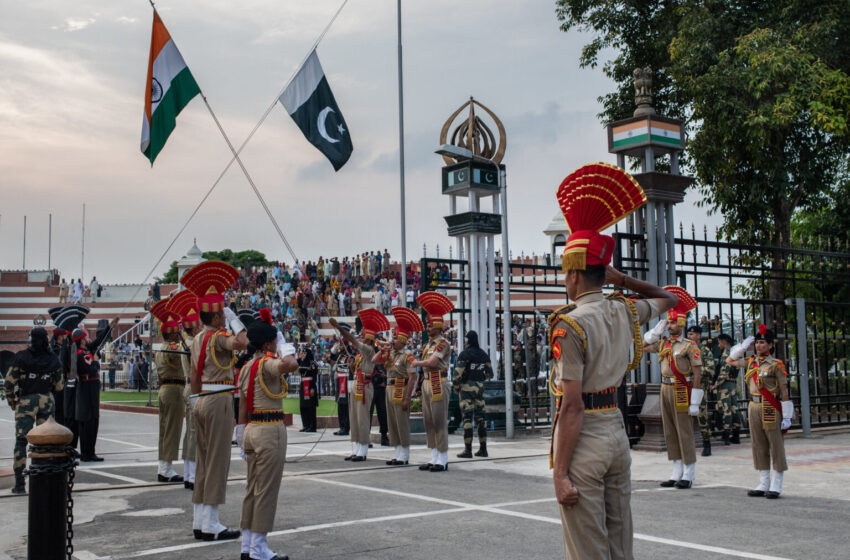
Explained: What India’s suspension of the Indus Waters Treaty means
The suspension of the Indus Waters Treaty (IWT) signifies a significant escalation in tensions between India and Pakistan.
On April 23, 2025, India announced the suspension of its participation in the treaty following a deadly militant attack in Kashmir that killed 26 civilians, including 25 Indian and one Nepalese national.India attributed the attack to cross-border terrorism allegedly supported by Pakistan, although no specific evidence was provided publicly.
What is the Indus Waters Treaty?
The Indus Waters Treaty, brokered by the World Bank and signed in 1960, is a landmark water-sharing agreement between India and Pakistan that governs the use of the six major rivers flowing through the Indus River Basin.Under the treaty, the three eastern rivers—Ravi, Beas, and Sutlej—were allocated to India for unrestricted use, while the three western rivers—Indus, Jhelum, and Chenab—were allocated to Pakistan, though India retained limited rights for non-consumptive uses such as irrigation, storage, and hydropower generation under strict technical conditions.
The treaty emerged after years of tense negotiations following the partition of British India in 1947, which divided the Indus basin between the two newly formed nations.Recognizing the potential for water disputes to escalate into broader conflict, the World Bank played a central mediating role in facilitating an agreement acceptable to both sides.Over the decades, the Indus Waters Treaty has been hailed as one of the most enduring and successful examples of international water cooperation.
Despite multiple wars, diplomatic breakdowns, and persistent hostilities, the treaty has largely held firm, serving as a rare symbol of cooperation in an otherwise adversarial relationship.Its resilience has made it a model for transboundary water management in other conflict-prone regions of the world.While the treaty does not contain a formal exit clause, legal experts argue that it cannot be unilaterally abrogated without breaching international law. Any attempt to do so could trigger international arbitration or intervention, particularly by the World Bank, which remains a party to the agreement.
Implications of the suspension
India’s suspension of the treaty is a significant diplomatic move, indicating a severe deterioration in bilateral relations. India has also downgraded diplomatic ties and closed the Wagah-Attari border crossing.
Pakistan has labeled the suspension as an act of “water warfare” and has indicated that it may approach international bodies like the United Nations and the International Court of Justice, arguing that the treaty cannot be unilaterally suspended.The suspension raises concerns about regional stability, especially considering the treaty’s role in managing shared water resources in a water-scarce region. Any disruption could have significant humanitarian and environmental consequences.
What the suspension could mean in practice
India may begin to store or divert more water from the Indus, Jhelum, and Chenab rivers for its own agricultural, hydroelectric, and military use, particularly in Jammu Kashmir, Ladakh, and Punjab, however, this cannot be possible in the immediate present.The suspension could accelerate India’s development of large-scale hydropower projects on the western rivers, projects that had been constrained by treaty stipulations. Pakistan, which heavily relies on the Indus system for irrigation and drinking water, could face acute shortages, affecting its agriculture and food security.India might invest in inter-basin water transfer systems, aiming to redirect water from western to eastern rivers or other drought-prone areas within the country.Any actual disruption in water flow could provoke retaliatory measures from Pakistan, intensify military tensions, or even lead to international arbitration or sanctions.
Can India immediately block the rivers?
India cannot immediately block or divert the rivers flowing to Pakistan. India does not currently have large-scale dams or diversion canals on the Indus, Jhelum, or Chenab that could halt or reroute water on short notice.The Current infrastructure includes run-of-the-river hydropower projects such as Kishanganga, Salal, and Baglihar, which allow minimal storage and cannot significantly disrupt water flow to Pakistan.Though the treaty allows limited storage, India has only used a fraction of that entitlement so far. Projects like Ratle, Pakal Dul, and the proposed Bursar Dam are under construction or delayed and would take years to become operational. Immediate blockage could flood Indian areas upstream and provoke international legal action.The suspension of the Indus Waters Treaty by India is a response to a severe security incident and represents a substantial shift in the management of bilateral relations and shared resources.





